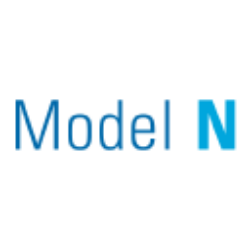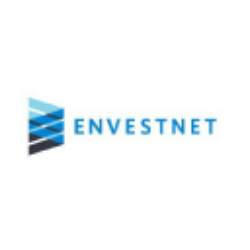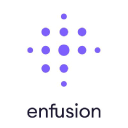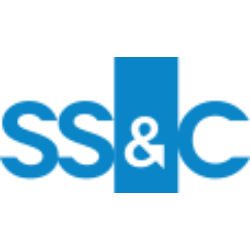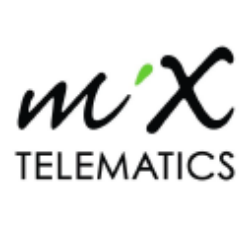DSGX
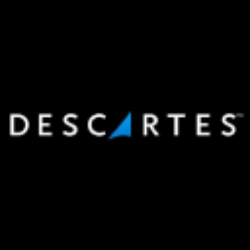
The Descartes Systems Group Inc.
DSGX
(3.0)115,37 USD
31% ROA
10.65% ROE
68.22x PER
8.723.295.230,00 USD
0.55% DER
0% Yield
21.8% NPM
The Descartes Systems Group Inc. Stock Analysis
The Descartes Systems Group Inc. Fundamental Analysis
Fundamental analysis in stock investing is like studying the foundation of a house before buying it. It involves looking at a company's financial health, like its earnings, assets, and debts, to determine if it's a good investment based on its fundamental strength and potential for growth.
| # | Analysis | Rating |
|---|---|---|
| 1 |
ROA
The stock's ability to make a lot of money from its assets shows that it is very profitable, making it a good choice for people who want to invest and make a lot of money. |
|
| 2 |
DER
The stock has a low debt to equity ratio (1%), which means it has a small amount of debt compared to the ownership it holds |
|
| 3 |
Revenue Growth
Over the past five years, this company's revenue has consistently increased, demonstrating a robust financial performance that makes it an appealing opportunity. |
|
| 4 |
Net Profit Growth
With a track record of consistent net profit growth over the past five years, this company presents a compelling investment opportunity due to its strong financial performance. |
|
| 5 |
Assets Growth
Over the past five years, this company's revenue has consistently increased, demonstrating a robust financial performance that makes it an appealing opportunity. |
|
| 6 |
ROE
The stock's ROE falls within an average range (10.53%), demonstrating satisfactory profitability and efficiency in utilizing shareholders' equity. |
|
| 7 |
Buffet Intrinsic Value
The company's stock seems undervalued (460) by Warren Buffett's formula, indicating a promising investment opportunity as its intrinsic value exceeds the market price. |
|
| 8 |
PBV
The stock's elevated P/BV ratio (6.62x) raises concerns about its overvaluation, making it an imprudent choice for investors seeking value. |
|
| 9 |
Graham Number
The Graham number of this company suggests that its stock price may be overvalued, indicating a less favorable investment opportunity. |
|
| 10 |
Dividend Growth
The company's dividend growth has shown no improvement in the past three years, making it a less attractive investment option for those seeking increasing returns. |
|
| 11 |
Dividend
The company's decision to withhold dividends for three years raises questions about its ability to generate consistent returns. |
The Descartes Systems Group Inc. Technical Analysis
Technical analysis in stock investing is like reading the patterns on a weather map to predict future weather conditions. It involves studying past stock price movements and trading volumes to make predictions about where a stock's price might go next, without necessarily looking at the company's financial health.
| # | Analysis | Recommendation |
|---|---|---|
| 1 | Awesome Oscillator | Buy |
| 2 | MACD | Buy |
| 3 | RSI | Hold |
| 4 | Stoch RSI | Sell |
The Descartes Systems Group Inc. Price Chart
Financial Statements
Financial statements are like report cards for companies. They show how much money a company makes (income statement), what it owns and owes (balance sheet), and where it spends its money (cash flow statement), helping stock investors understand if a company is healthy and worth investing in.
Income Statements
An income statement for a company is like a scoreboard for its profits and losses. It shows how much money the company made (revenue) and how much it spent to make that money (expenses), helping stock investors see if a company is making a profit or not.
Revenue in stock investing is the total amount of money a company earns from its sales, and it's a key factor that investors consider to assess a company's financial performance and growth potential.
| Year | Revenue | Growth |
|---|---|---|
| 1997 | 20.505.057 | |
| 1998 | 20.505.057 | 0% |
| 1999 | 48.800.000 | 57.98% |
| 2000 | 43.665.167 | -11.76% |
| 2001 | 66.649.000 | 34.48% |
| 2002 | 79.522.000 | 16.19% |
| 2003 | 70.383.000 | -12.98% |
| 2004 | 59.785.000 | -17.73% |
| 2005 | 46.395.000 | -28.86% |
| 2006 | 45.729.000 | -1.46% |
| 2007 | 51.990.000 | 12.04% |
| 2008 | 59.025.000 | 11.92% |
| 2009 | 66.044.000 | 10.63% |
| 2010 | 73.768.000 | 10.47% |
| 2011 | 99.175.000 | 25.62% |
| 2012 | 113.990.000 | 13% |
| 2013 | 126.883.000 | 10.16% |
| 2014 | 151.294.000 | 16.13% |
| 2015 | 170.860.000 | 11.45% |
| 2016 | 184.993.000 | 7.64% |
| 2017 | 203.779.000 | 9.22% |
| 2018 | 237.439.000 | 14.18% |
| 2019 | 275.171.000 | 13.71% |
| 2020 | 325.791.000 | 15.54% |
| 2021 | 348.664.000 | 6.56% |
| 2022 | 424.690.000 | 17.9% |
| 2023 | 578.792.000 | 26.62% |
| 2023 | 486.014.000 | -19.09% |
| 2024 | 572.931.000 | 15.17% |
| 2025 | 648.337.260 | 11.63% |
Research and Development Expenses are the costs a company incurs to create and improve its products or services, which can be important for investors to evaluate a company's innovation and potential for future growth.
| Year | Research and Development Expenses | Growth |
|---|---|---|
| 1997 | 3.853.299 | |
| 1998 | 3.853.299 | 0% |
| 1999 | 11.300.000 | 65.9% |
| 2000 | 15.028.429 | 24.81% |
| 2001 | 16.189.000 | 7.17% |
| 2002 | 25.385.000 | 36.23% |
| 2003 | 15.223.000 | -66.75% |
| 2004 | 9.382.000 | -62.26% |
| 2005 | 10.419.000 | 9.95% |
| 2006 | 6.991.000 | -49.03% |
| 2007 | 9.033.000 | 22.61% |
| 2008 | 10.540.000 | 14.3% |
| 2009 | 11.458.000 | 8.01% |
| 2010 | 14.499.000 | 20.97% |
| 2011 | 16.971.000 | 14.57% |
| 2012 | 19.044.000 | 10.89% |
| 2013 | 21.269.000 | 10.46% |
| 2014 | 25.881.000 | 17.82% |
| 2015 | 28.077.000 | 7.82% |
| 2016 | 31.293.000 | 10.28% |
| 2017 | 35.556.000 | 11.99% |
| 2018 | 41.804.000 | 14.95% |
| 2019 | 47.872.000 | 12.68% |
| 2020 | 53.513.000 | 10.54% |
| 2021 | 54.066.000 | 1.02% |
| 2022 | 62.570.000 | 13.59% |
| 2023 | 84.472.000 | 25.93% |
| 2023 | 70.353.000 | -20.07% |
| 2024 | 84.440.941 | 16.68% |
| 2025 | 94.851.432 | 10.98% |
General and Administrative Expenses are the costs a company incurs to run its day-to-day operations, such as office rent, salaries, and utilities, which investors consider to understand a company's overall efficiency and management effectiveness.
| Year | General and Administrative Expenses | Growth |
|---|---|---|
| 1997 | 0 | |
| 1998 | 0 | 0% |
| 1999 | 0 | 0% |
| 2000 | 0 | 0% |
| 2001 | 8.618.000 | 100% |
| 2002 | 10.751.000 | 19.84% |
| 2003 | 0 | 0% |
| 2004 | 0 | 0% |
| 2005 | 0 | 0% |
| 2006 | 0 | 0% |
| 2007 | 0 | 0% |
| 2008 | 0 | 0% |
| 2009 | 9.288.000 | 100% |
| 2010 | 11.991.000 | 22.54% |
| 2011 | 13.633.000 | 12.04% |
| 2012 | 14.272.000 | 4.48% |
| 2013 | 15.691.000 | 9.04% |
| 2014 | 20.509.000 | 23.49% |
| 2015 | 20.333.000 | -0.87% |
| 2016 | 21.607.000 | 5.9% |
| 2017 | 23.077.000 | 6.37% |
| 2018 | 25.448.000 | 9.32% |
| 2019 | 30.012.000 | 15.21% |
| 2020 | 34.628.000 | 13.33% |
| 2021 | 36.267.000 | 4.52% |
| 2022 | 44.454.000 | 18.42% |
| 2023 | 58.848.000 | 24.46% |
| 2023 | 49.710.000 | -18.38% |
| 2024 | 57.373.000 | 13.36% |
| 2025 | 66.088.000 | 13.19% |
EBITDA stands for Earnings Before Interest, Taxes, Depreciation, and Amortization. It is a measure that helps stock investors analyze a company's profitability by looking at its earnings without considering certain expenses. This helps to get a clearer picture of the company's financial performance and its ability to generate cash flow.
| Year | EBITDA | Growth |
|---|---|---|
| 1997 | 275.235 | |
| 1998 | -274.668 | 200.21% |
| 1999 | 14.000.000 | 101.96% |
| 2000 | -18.317.551 | 176.43% |
| 2001 | -825.000 | -2120.31% |
| 2002 | -8.925.000 | 90.76% |
| 2003 | -115.271.000 | 92.26% |
| 2004 | -7.996.000 | -1341.61% |
| 2005 | -32.891.000 | 75.69% |
| 2006 | 30.696.000 | 207.15% |
| 2007 | 10.452.000 | -193.69% |
| 2008 | 13.320.000 | 21.53% |
| 2009 | 15.926.000 | 16.36% |
| 2010 | 15.182.000 | -4.9% |
| 2011 | 21.838.000 | 30.48% |
| 2012 | 29.857.000 | 26.86% |
| 2013 | 36.636.000 | 18.5% |
| 2014 | 42.576.000 | 13.95% |
| 2015 | 50.462.000 | 15.63% |
| 2016 | 59.188.000 | 14.74% |
| 2017 | 67.780.000 | 12.68% |
| 2018 | 77.456.000 | 12.49% |
| 2019 | 89.964.000 | 13.9% |
| 2020 | 114.192.930 | 21.22% |
| 2021 | 135.393.000 | 15.66% |
| 2022 | 165.539.081 | 18.21% |
| 2023 | 235.144.000 | 29.6% |
| 2023 | 196.833.805 | -19.46% |
| 2024 | 219.367.931 | 10.27% |
| 2025 | 245.176.004 | 10.53% |
Gross profit is the money a company makes from selling its products or services after subtracting the cost of producing or providing them, and it is an important measure for investors to understand a company's profitability.
| Year | Gross Profit | Growth |
|---|---|---|
| 1997 | 16.032.477 | |
| 1998 | 16.032.477 | 0% |
| 1999 | 44.100.000 | 63.65% |
| 2000 | 22.511.383 | -95.9% |
| 2001 | 44.478.000 | 49.39% |
| 2002 | 51.821.000 | 14.17% |
| 2003 | 43.752.000 | -18.44% |
| 2004 | 40.398.000 | -8.3% |
| 2005 | 25.342.000 | -59.41% |
| 2006 | 27.602.000 | 8.19% |
| 2007 | 34.503.000 | 20% |
| 2008 | 38.385.000 | 10.11% |
| 2009 | 43.691.000 | 12.14% |
| 2010 | 50.596.000 | 13.65% |
| 2011 | 65.300.000 | 22.52% |
| 2012 | 75.677.000 | 13.71% |
| 2013 | 84.484.000 | 10.42% |
| 2014 | 102.251.000 | 17.38% |
| 2015 | 115.981.000 | 11.84% |
| 2016 | 131.134.000 | 11.56% |
| 2017 | 147.728.000 | 11.23% |
| 2018 | 173.735.000 | 14.97% |
| 2019 | 200.177.000 | 13.21% |
| 2020 | 240.070.000 | 16.62% |
| 2021 | 258.754.000 | 7.22% |
| 2022 | 322.880.000 | 19.86% |
| 2023 | 441.492.000 | 26.87% |
| 2023 | 372.688.000 | -18.46% |
| 2024 | 434.636.000 | 14.25% |
| 2025 | 418.371.432 | -3.89% |
Net income in stock investing is like the money a company actually gets to keep as profit after paying all its bills, and it's an important measure to understand how well a company is doing financially.
| Year | Net Profit | Growth |
|---|---|---|
| 1997 | -11.697.516 | |
| 1998 | -11.697.516 | 0% |
| 1999 | -25.900.000 | 54.84% |
| 2000 | -21.769.223 | -18.98% |
| 2001 | -31.626.000 | 31.17% |
| 2002 | -58.718.000 | 46.14% |
| 2003 | -138.195.000 | 57.51% |
| 2004 | -42.752.000 | -223.25% |
| 2005 | -55.331.000 | 22.73% |
| 2006 | 2.989.000 | 1951.15% |
| 2007 | 3.987.000 | 25.03% |
| 2008 | 22.443.000 | 82.23% |
| 2009 | 20.468.000 | -9.65% |
| 2010 | 14.350.000 | -42.63% |
| 2011 | 11.539.000 | -24.36% |
| 2012 | 12.026.000 | 4.05% |
| 2013 | 15.996.000 | 24.82% |
| 2014 | 9.612.000 | -66.42% |
| 2015 | 15.059.000 | 36.17% |
| 2016 | 20.562.000 | 26.76% |
| 2017 | 23.838.000 | 13.74% |
| 2018 | 26.879.000 | 11.31% |
| 2019 | 31.277.000 | 14.06% |
| 2020 | 36.997.000 | 15.46% |
| 2021 | 52.100.000 | 28.99% |
| 2022 | 86.282.000 | 39.62% |
| 2023 | 106.408.000 | 18.91% |
| 2023 | 102.236.000 | -4.08% |
| 2024 | 115.907.000 | 11.79% |
| 2025 | 138.724.000 | 16.45% |
EPS, or earnings per share, is a measure that shows how much profit a company has earned for each outstanding share of its stock, and it is important for stock investors as it helps understand the profitability of a company and compare it with other companies in the market.
| Year | Earning per Share (EPS) | Growth |
|---|---|---|
| 1997 | -1 | |
| 1998 | -1 | 0% |
| 1999 | -1 | 0% |
| 2000 | -1 | 0% |
| 2001 | -1 | 0% |
| 2002 | -1 | 100% |
| 2003 | -3 | 50% |
| 2004 | -1 | 0% |
| 2005 | -1 | 100% |
| 2006 | 0 | 0% |
| 2007 | 0 | 0% |
| 2008 | 0 | 0% |
| 2009 | 0 | 0% |
| 2010 | 0 | 0% |
| 2011 | 0 | 0% |
| 2012 | 0 | 0% |
| 2013 | 0 | 0% |
| 2014 | 0 | 0% |
| 2015 | 0 | 0% |
| 2016 | 0 | 0% |
| 2017 | 0 | 0% |
| 2018 | 0 | 0% |
| 2019 | 0 | 0% |
| 2020 | 0 | 0% |
| 2021 | 1 | 0% |
| 2022 | 1 | 100% |
| 2023 | 1 | 0% |
| 2023 | 1 | 0% |
| 2024 | 1 | 0% |
| 2025 | 2 | 0% |
Cashflow Statements
Cashflow statements show the movement of money in and out of a company, helping stock investors understand how much money a company makes and spends. By examining cashflow statements, investors can assess if a company is generating enough cash to pay its bills, invest in growth, and provide returns to stockholders.
Free cash flow is the leftover cash that a company generates after covering its operating expenses and capital expenditures, which is important for stock investors as it shows how much money a company has available to invest in growth, pay dividends, or reduce debt.
| Year | Free Cashflow | Growth |
|---|---|---|
| 1997 | -15.482.006 | |
| 1998 | -15.482.006 | 0% |
| 1999 | -28.200.000 | 45.1% |
| 2000 | -18.035.470 | -56.36% |
| 2001 | -11.348.000 | -58.93% |
| 2002 | -20.954.000 | 45.84% |
| 2003 | -22.106.000 | 5.21% |
| 2004 | -32.833.000 | 32.67% |
| 2005 | -16.098.000 | -103.96% |
| 2006 | 6.701.000 | 340.23% |
| 2007 | 5.583.000 | -20.03% |
| 2008 | 10.864.000 | 48.61% |
| 2009 | 17.342.000 | 37.35% |
| 2010 | 14.909.000 | -16.32% |
| 2011 | 18.233.000 | 18.23% |
| 2012 | 19.192.000 | 5% |
| 2013 | 26.844.000 | 28.51% |
| 2014 | 40.229.000 | 33.27% |
| 2015 | 46.799.000 | 14.04% |
| 2016 | 49.934.000 | 6.28% |
| 2017 | 67.669.000 | 26.21% |
| 2018 | 67.057.000 | -0.91% |
| 2019 | 72.830.000 | 7.93% |
| 2020 | 99.352.000 | 26.69% |
| 2021 | 127.471.000 | 22.06% |
| 2022 | 171.309.000 | 25.59% |
| 2023 | 186.324.000 | 8.06% |
| 2023 | 54.588.000 | -241.33% |
| 2024 | 202.885.971 | 73.09% |
| 2025 | 32.949.527 | -515.75% |
Operating cash flow represents the cash generated or consumed by a company's day-to-day operations, excluding external investing or financing activities, and is crucial for stock investors as it shows how much cash a company is generating from its core business operations.
| Year | Operating Cashflow | Growth |
|---|---|---|
| 1997 | -3.096.401 | |
| 1998 | -3.096.401 | 0% |
| 1999 | -15.300.000 | 79.76% |
| 2000 | -15.569.845 | 1.73% |
| 2001 | -7.050.000 | -120.85% |
| 2002 | -15.598.000 | 54.8% |
| 2003 | -16.819.000 | 7.26% |
| 2004 | -32.498.000 | 48.25% |
| 2005 | -15.038.000 | -116.11% |
| 2006 | 7.872.000 | 291.03% |
| 2007 | 6.785.000 | -16.02% |
| 2008 | 11.938.000 | 43.16% |
| 2009 | 18.685.000 | 36.11% |
| 2010 | 16.535.000 | -13% |
| 2011 | 19.889.000 | 16.86% |
| 2012 | 23.926.000 | 16.87% |
| 2013 | 30.340.000 | 21.14% |
| 2014 | 42.614.000 | 28.8% |
| 2015 | 49.478.000 | 13.87% |
| 2016 | 54.243.000 | 8.78% |
| 2017 | 72.583.000 | 25.27% |
| 2018 | 72.143.000 | -0.61% |
| 2019 | 78.074.000 | 7.6% |
| 2020 | 104.252.000 | 25.11% |
| 2021 | 131.230.000 | 20.56% |
| 2022 | 176.138.000 | 25.5% |
| 2023 | 192.395.000 | 8.45% |
| 2023 | 56.050.000 | -243.26% |
| 2024 | 208.471.324 | 73.11% |
| 2025 | 34.513.769 | -504.02% |
Capex, short for capital expenditures, refers to the money a company spends on acquiring or upgrading tangible assets like buildings, equipment, or technology, which is important for stock investors as it indicates how much a company is investing in its infrastructure to support future growth and profitability.
| Year | Capital Expenditure | Growth |
|---|---|---|
| 1997 | 12.385.605 | |
| 1998 | 12.385.605 | 0% |
| 1999 | 12.900.000 | 3.99% |
| 2000 | 2.465.625 | -423.19% |
| 2001 | 4.298.000 | 42.63% |
| 2002 | 5.356.000 | 19.75% |
| 2003 | 5.287.000 | -1.31% |
| 2004 | 335.000 | -1478.21% |
| 2005 | 1.060.000 | 68.4% |
| 2006 | 1.171.000 | 9.48% |
| 2007 | 1.202.000 | 2.58% |
| 2008 | 1.074.000 | -11.92% |
| 2009 | 1.343.000 | 20.03% |
| 2010 | 1.626.000 | 17.4% |
| 2011 | 1.656.000 | 1.81% |
| 2012 | 4.734.000 | 65.02% |
| 2013 | 3.496.000 | -35.41% |
| 2014 | 2.385.000 | -46.58% |
| 2015 | 2.679.000 | 10.97% |
| 2016 | 4.309.000 | 37.83% |
| 2017 | 4.914.000 | 12.31% |
| 2018 | 5.086.000 | 3.38% |
| 2019 | 5.244.000 | 3.01% |
| 2020 | 4.900.000 | -7.02% |
| 2021 | 3.759.000 | -30.35% |
| 2022 | 4.829.000 | 22.16% |
| 2023 | 6.071.000 | 20.46% |
| 2023 | 1.462.000 | -315.25% |
| 2024 | 5.585.353 | 73.82% |
| 2025 | 1.564.242 | -257.06% |
Balance Sheet
Balance sheets provide a snapshot of a company's financial health and its assets (such as cash, inventory, and property) and liabilities (like debts and obligations) at a specific point in time. For stock investors, balance sheets help assess the company's overall worth and evaluate its ability to meet financial obligations and support future growth.
Equity refers to the ownership interest or stake that shareholders have in a company, representing their claim on its assets and earnings after all debts and liabilities are paid.
| Year | Equity | Growth |
|---|---|---|
| 1997 | 71.079.612 | |
| 1998 | 71.079.612 | 0% |
| 1999 | 47.200.000 | -50.59% |
| 2000 | 75.660.183 | 37.62% |
| 2001 | 300.490.000 | 74.82% |
| 2002 | 295.602.000 | -1.65% |
| 2003 | 154.720.000 | -91.06% |
| 2004 | 92.197.000 | -67.81% |
| 2005 | 35.738.000 | -157.98% |
| 2006 | 38.416.000 | 6.97% |
| 2007 | 62.749.000 | 38.78% |
| 2008 | 112.723.000 | 44.33% |
| 2009 | 132.425.000 | 14.88% |
| 2010 | 187.872.000 | 29.51% |
| 2011 | 205.515.000 | 8.58% |
| 2012 | 218.556.000 | 5.97% |
| 2013 | 237.042.000 | 7.8% |
| 2014 | 250.160.000 | 5.24% |
| 2015 | 390.385.000 | 35.92% |
| 2016 | 402.035.000 | 2.9% |
| 2017 | 430.595.000 | 6.63% |
| 2018 | 498.812.000 | 13.68% |
| 2019 | 533.507.000 | 6.5% |
| 2020 | 821.709.000 | 35.07% |
| 2021 | 911.068.000 | 9.81% |
| 2022 | 999.819.000 | 8.88% |
| 2023 | 1.187.030.000 | 15.77% |
| 2023 | 1.099.391.000 | -7.97% |
| 2024 | 1.230.466.634 | 10.65% |
| 2025 | 1.312.312.922 | 6.24% |
Assets represent the valuable resources that a company owns, such as cash, inventory, property, and equipment, and understanding a company's assets helps investors assess its value and potential for generating future profits.
| Year | Assets | Growth |
|---|---|---|
| 1997 | 86.148.765 | |
| 1998 | 86.148.765 | 0% |
| 1999 | 62.200.000 | -38.5% |
| 2000 | 90.358.584 | 31.16% |
| 2001 | 400.964.000 | 77.46% |
| 2002 | 388.522.000 | -3.2% |
| 2003 | 242.275.000 | -60.36% |
| 2004 | 128.758.000 | -88.16% |
| 2005 | 72.573.000 | -77.42% |
| 2006 | 46.770.000 | -55.17% |
| 2007 | 71.334.000 | 34.44% |
| 2008 | 126.394.000 | 43.56% |
| 2009 | 146.120.000 | 13.5% |
| 2010 | 208.190.000 | 29.81% |
| 2011 | 241.269.000 | 13.71% |
| 2012 | 258.924.000 | 6.82% |
| 2013 | 274.910.000 | 5.81% |
| 2014 | 344.477.000 | 20.19% |
| 2015 | 444.201.000 | 22.45% |
| 2016 | 452.787.000 | 1.9% |
| 2017 | 500.540.000 | 9.54% |
| 2018 | 624.878.000 | 19.9% |
| 2019 | 653.334.000 | 4.36% |
| 2020 | 942.586.000 | 30.69% |
| 2021 | 1.063.254.000 | 11.35% |
| 2022 | 1.185.431.000 | 10.31% |
| 2023 | 1.432.779.000 | 17.26% |
| 2023 | 1.316.044.000 | -8.87% |
| 2024 | 1.465.273.572 | 10.18% |
| 2025 | 1.566.075.067 | 6.44% |
Liabilities refer to the financial obligations or debts that a company owes to creditors or external parties, and understanding a company's liabilities is important for investors as it helps assess the company's financial risk and ability to meet its obligations.
| Year | Liabilities | Growth |
|---|---|---|
| 1997 | 15.069.153 | |
| 1998 | 15.069.153 | 0% |
| 1999 | 15.000.000 | -0.46% |
| 2000 | 14.698.401 | -2.05% |
| 2001 | 100.474.000 | 85.37% |
| 2002 | 92.920.000 | -8.13% |
| 2003 | 87.555.000 | -6.13% |
| 2004 | 36.561.000 | -139.48% |
| 2005 | 36.835.000 | 0.74% |
| 2006 | 8.354.000 | -340.93% |
| 2007 | 8.585.000 | 2.69% |
| 2008 | 13.671.000 | 37.2% |
| 2009 | 13.695.000 | 0.18% |
| 2010 | 20.318.000 | 32.6% |
| 2011 | 35.754.000 | 43.17% |
| 2012 | 40.368.000 | 11.43% |
| 2013 | 37.868.000 | -6.6% |
| 2014 | 94.317.000 | 59.85% |
| 2015 | 53.816.000 | -75.26% |
| 2016 | 50.752.000 | -6.04% |
| 2017 | 69.945.000 | 27.44% |
| 2018 | 126.066.000 | 44.52% |
| 2019 | 119.827.000 | -5.21% |
| 2020 | 120.877.000 | 0.87% |
| 2021 | 152.186.000 | 20.57% |
| 2022 | 185.612.000 | 18.01% |
| 2023 | 245.749.000 | 24.47% |
| 2023 | 216.653.000 | -13.43% |
| 2024 | 234.806.938 | 7.73% |
| 2025 | 253.762.145 | 7.47% |
The Descartes Systems Group Inc. Financial Ratio (TTM)
Valuation Metrics
- Revenue per Share
- 7.08
- Net Income per Share
- 1.5
- Price to Earning Ratio
- 68.22x
- Price To Sales Ratio
- 14.42x
- POCF Ratio
- 42.64
- PFCF Ratio
- 43.84
- Price to Book Ratio
- 6.64
- EV to Sales
- 14.01
- EV Over EBITDA
- 33.8
- EV to Operating CashFlow
- 41.47
- EV to FreeCashFlow
- 42.61
- Earnings Yield
- 0.01
- FreeCashFlow Yield
- 0.02
- Market Cap
- 8,72 Bil.
- Enterprise Value
- 8,48 Bil.
- Graham Number
- 22.74
- Graham NetNet
- 0.63
Income Statement Metrics
- Net Income per Share
- 1.5
- Income Quality
- 1.61
- ROE
- 0.1
- Return On Assets
- 0.09
- Return On Capital Employed
- 0.12
- Net Income per EBT
- 0.75
- EBT Per Ebit
- 1.07
- Ebit per Revenue
- 0.27
- Effective Tax Rate
- 0.25
Margins
- Sales, General, & Administrative to Revenue
- 0.1
- Research & Developement to Revenue
- 0.15
- Stock Based Compensation to Revenue
- 0.03
- Gross Profit Margin
- 0.75
- Operating Profit Margin
- 0.27
- Pretax Profit Margin
- 0.29
- Net Profit Margin
- 0.22
Dividends
- Dividend Yield
- 0
- Dividend Yield %
- 0
- Payout Ratio
- 0
- Dividend Per Share
- 0
Operating Metrics
- Operating Cashflow per Share
- 2.39
- Free CashFlow per Share
- 2.33
- Capex to Operating CashFlow
- 0.03
- Capex to Revenue
- 0.01
- Capex to Depreciation
- 0.08
- Return on Invested Capital
- 0.1
- Return on Tangible Assets
- 0.31
- Days Sales Outstanding
- 44.38
- Days Payables Outstanding
- 40.25
- Days of Inventory on Hand
- 0
- Receivables Turnover
- 8.22
- Payables Turnover
- 9.07
- Inventory Turnover
- 193007474
- Capex per Share
- 0.06
Balance Sheet
- Cash per Share
- 2,96
- Book Value per Share
- 15,36
- Tangible Book Value per Share
- 1.85
- Shareholders Equity per Share
- 15.36
- Interest Debt per Share
- 0.1
- Debt to Equity
- 0.01
- Debt to Assets
- 0
- Net Debt to EBITDA
- -0.98
- Current Ratio
- 1.79
- Tangible Asset Value
- 0,16 Bil.
- Net Current Asset Value
- 0,11 Bil.
- Invested Capital
- 1334204434
- Working Capital
- 0,16 Bil.
- Intangibles to Total Assets
- 0.74
- Average Receivables
- 0,07 Bil.
- Average Payables
- 0,02 Bil.
- Average Inventory
- 1
- Debt to Market Cap
- 0
Dividends
Dividends in stock investing are like rewards that companies give to their shareholders. They are a portion of the company's profits distributed to investors, typically in the form of cash payments, as a way for them to share in the company's success.
| Year | Dividends | Growth |
|---|
The Descartes Systems Group Inc. Profile
About The Descartes Systems Group Inc.
The Descartes Systems Group Inc. provides cloud-based logistics and supply chain management business process solutions that focuses on enhancing the productivity, performance, and security of logistics-intensive businesses worldwide. Its Logistics Technology platform offers a range of modular, cloud-based, and interoperable web and wireless logistics management applications, which unites a community of logistics-focused parties, allowing them to transact business. The company provides a suite of solutions that include routing, mobile and telematics; transportation management and e-commerce enablement; customs and regulatory compliance; trade data; global logistics network services; and broker and forwarder enterprise systems. It offers its customers to use its modular, software-as-a-service, and data solutions to route, schedule, track, and measure delivery resources; plan, allocate, and execute shipments; rate, audit, and pay transportation invoices; access and analyze global trade data; research and perform trade tariff and duty calculations; file customs and security documents for imports and exports; and various other logistics processes. The company also provides cloud-based ecommerce warehouse management solutions; consulting, implementation, and training services; and maintenance and support services. It primarily focuses on serving transportation providers, logistics service providers, and distribution-intensive companies, as well as manufacturers, retailers, distributors, and mobile business service providers. The company was incorporated in 1981 and is headquartered in Waterloo, Canada.
- CEO
- Mr. Edward J. Ryan B.A.
- Employee
- 1.334
- Address
-
120 Randall Drive
Waterloo, N2V 1C6
The Descartes Systems Group Inc. Executives & BODs
| # | Name | Age |
|---|---|---|
| 1 |
Mr. Raimond Diederik Executive Vice President of Information Services |
70 |
| 2 |
Mr. Allan J. Brett C.A., C.B.V. Chief Financial Officer |
70 |
| 3 |
Mr. Peter Nguyen Senior Vice President Legal, General Counsel, Corporate Secretary & Compliance Officer |
70 |
| 4 |
Mr. John Scott Pagan President & Chief Operating Officer |
70 |
| 5 |
Mr. Robert Parker Executive Vice President of Customer Support & Client Services |
70 |
| 6 |
Mr. Kenneth Edward Wood Executive Vice President of Product Management |
70 |
| 7 |
Mr. Edward James Gardner Executive Vice President of Corporate Development |
70 |
| 8 |
Mr. Edward J. Ryan B.A. Chief Executive Officer & Director |
70 |
| 9 |
Mr. Andrew Roszko Chief Commercial Officer |
70 |
| 10 |
Ms. Maija Michell Senior Vice President of Human Resources |
70 |



